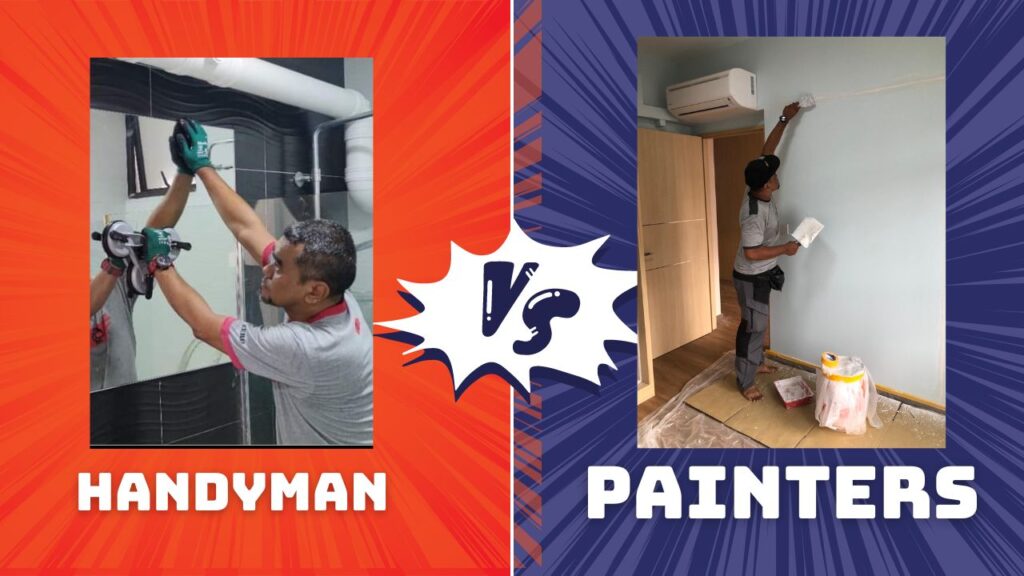Are you looking to tackle some home repairs on your own? Here are 8 helpful tips to guide you through your DIY projects.
Whether it’s fixing a leaky faucet or patching up a hole in the wall, these tips will make the process smoother and more efficient.
1. Make a Plan
Before you start any home repair, it’s important to have a plan. This means knowing exactly what needs to be fixed and what tools you’ll need.
Write down the steps you need to take and gather all your materials before starting. This way, you won’t be running back and forth to the store, and you’ll be able to focus on the repair.
2. Use the Right Tools
Using the right tools can make a big difference in the success of your repair.
For example, using a flathead screwdriver when you need a Phillips head can strip screws and make the job harder.
If you’re not sure what tools you need, don’t hesitate to ask for help at your local hardware store. They can guide you to the right tools for your specific repair.
3. Take Safety Precautions
Safety should always be your top priority when doing home repairs.
Wear protective gear like gloves and safety goggles, especially when dealing with sharp objects or chemicals.
Make sure your work area is well-lit and clean up any clutter that could cause you to trip or fall. If you’re using a ladder, ensure it’s on a stable surface and never overreach.
4. Educate Yourself
Before diving into a repair project, take some time to educate yourself about the task at hand.
Watch tutorial videos online, read DIY guides, or seek advice from experienced individuals. Understanding the process and potential pitfalls can save you time, money, and frustration in the long run.
5. Start Small
If you’re new to home repairs, it’s best to start with small, manageable projects. This allows you to gain confidence and skills before tackling more complex tasks.
Simple repairs like tightening loose screws, replacing light bulbs, or fixing a squeaky door hinge are great starting points.
6. Focus on Quality
When repairing your home, aim for quality results that will stand the test of time. Rushing through a repair or cutting corners may lead to more problems down the line.
Take your time, follow instructions carefully, and use high-quality materials to ensure a job well done.
7. Maintain Regularly
Preventive maintenance is key to avoiding costly repairs in the future. Schedule regular inspections of your home’s systems and appliances to catch any issues early on.
Simple tasks like cleaning gutters, replacing air filters, and checking for leaks can save you from major headaches later.
8. Know When to Call a Professional
Knowing when to tackle a repair yourself and when to call a handyman can save you time, money, and frustration. Here are some common repairs you can typically handle on your own, and situations where it’s best to enlist the help of a professional:
DIY Repairs:
- Minor Plumbing Issues: You can often handle simple plumbing tasks like unclogging drains, replacing faucets or showerheads, and fixing minor leaks.
- Painting and Patching: Patching small holes in walls, painting rooms, or even refinishing furniture are tasks that can usually be done without professional help.
- Basic Electrical Work: Changing light fixtures, replacing outlets or switches, and installing ceiling fans are DIY-friendly electrical tasks if you’re comfortable working with electricity.
- Gardening and Landscaping: Routine maintenance like mowing the lawn, pruning shrubs, and planting flowers can typically be done without hiring a professional landscaper.
When to Call a Handyman:
- Major Plumbing Issues: If you’re dealing with a significant plumbing problem like a burst pipe, sewer line backup, or water heater malfunction, it’s best to call a professional plumber.
- Structural Repairs: Any repairs involving the structural integrity of your home, such as foundation issues, roof leaks, or termite damage, should be handled by a qualified contractor.
- Complex Electrical Work: Wiring upgrades, panel replacements, and troubleshooting electrical issues beyond changing a light fixture should be left to licensed electricians for safety reasons.
- Specialized Tasks: For tasks requiring specialized skills or equipment, such as HVAC repairs, appliance installation, or major renovations, it’s wise to hire a professional with the expertise to get the job done right.
